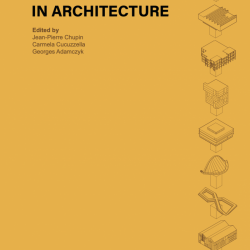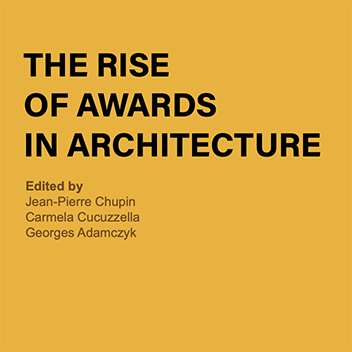This book is the first scientific study to focus on awards in architecture and the built environment investigating their exponential growth since the 1980s. The celebration of excellence in architecture and related fields remains a phenomenon on which there is strangely little scientific scrutiny. It is now necessary to take a critical distance to question what awards are meant to embody, symbolize, and perhaps measure. Each of the 10 chapters in this volume is centered on one question related to themes as varied as the comparison of Pritzker and Nobel Prizes, the Prix de Rome, the redefinition of quality through awards, green awards and sustainability, the multiplication of sustainable awards, heritage awards, architecture book awards, the awarding of school architecture, awards as mediations and awards as pedagogical devices.
Praise
This book offers an in-depth analysis of the widespread practice of acknowledging the quality of architecture works with prizes, awards, and project competitions given to individuals, collective works, and constructions. This timely study considers a contemporary culture of recognition that is largely taken for granted and not yet grasped as a global and rising phenomenon that has seen exponential growth since the 1980s. The contributors thus address the controversies, ambiguities, and shortcomings surrounding this context, including issues of gender biases, cultural diversity, transparency, and how media, politics, and financial prizes impact architectural awards. The authors provide scholarly insights that cannot be found elsewhere, proving a timely contribution to knowledge that will further our understanding of the context in which contemporary architecture practices operate.
Federica Goffi, Ph.D.,
School of Architecture (Carleton University)
This book raises, in quite a healthy and rational fashion, the vexed question of the judgment of quality in the arts, lifting the lid on the very human and sometimes unseemly tendency to favor winners and follow the money, while yet allowing some hope for continuing development of mechanisms that permit valid judgments, promote genuine quality, and encourage current and future practitioners. This is an unusually balanced point of view. This is a useful guide to understanding how things have worked and to acting intelligently to make things fairer.
David Vanderburgh, Ph.D.,
Laboratory of Architecture and the Built Environment (Université catholique de Louvain)
Authors and Editors
Jean-Pierre Chupin, Carmela Cucuzzella, Georges Adamczyk (Eds.)
by Dana Buntrock (University of California, Berkeley)


